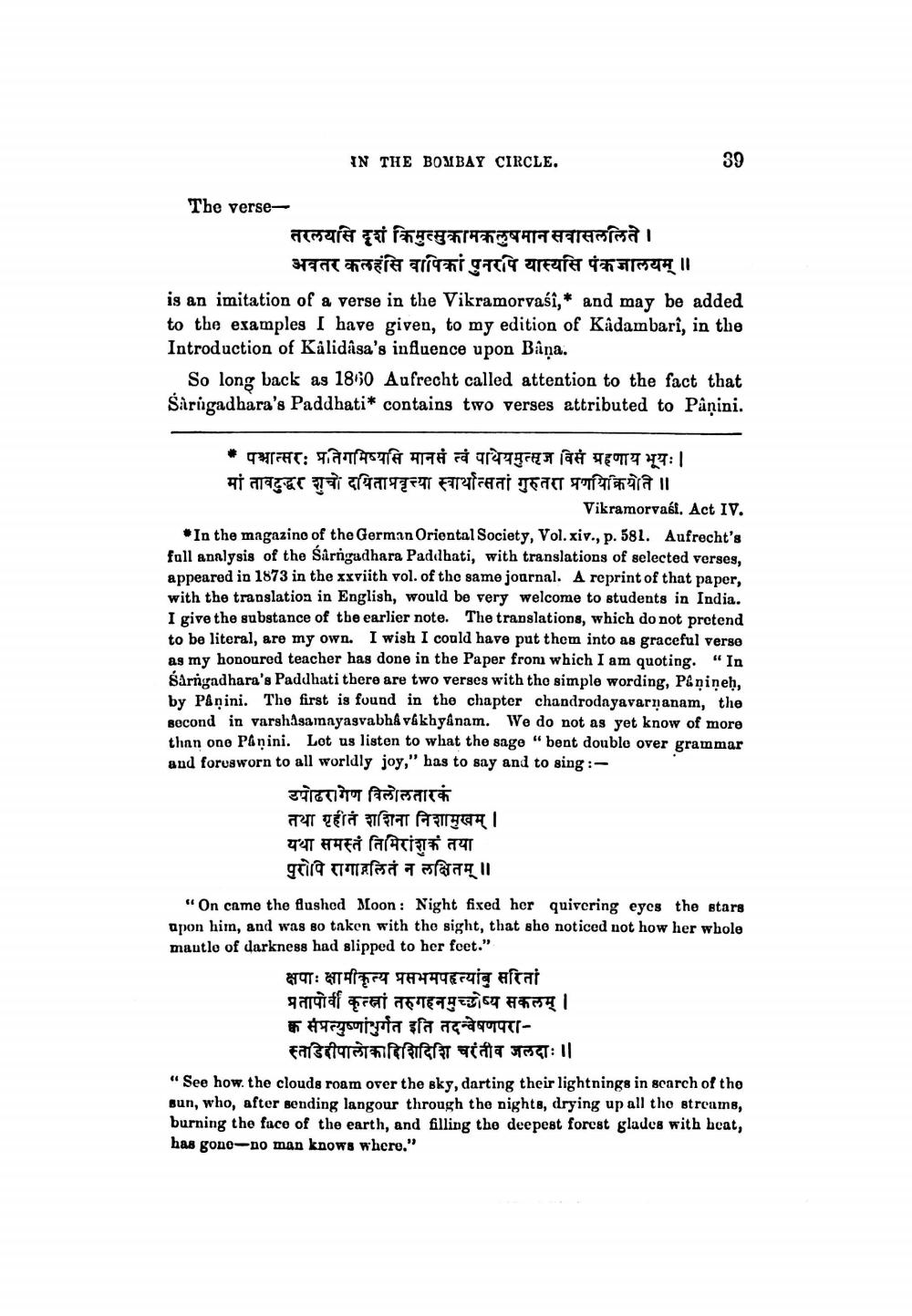________________
IN THE BOMBAY CIRCLE.
39
The verse
तरलयसि दृशं किमुत्सुकामकलुषमानसवासललिते।
अवतर कलहंसि वापिकां पुनरपि यास्यसि पंकजालयम् ।। is an imitation of a verse in the Vikramorvasî,* and may be added to the examples I have given, to my edition of Kâdambarî, in the Introduction of Kalidasa's influence upon Baņa.
So long back as 1860 Aufrecht called attention to the fact that Shriigadhara's Paddhati* contains two verses attributed to Panini.
•पभान्सरः प्रतिगमिष्यसि मानसं त्वं पाययमुत्सृज विसं ग्रहणाय भूयः। मां तावदुद्धर शुचो दयिताप्रवृत्त्या स्वार्थात्सतां गुरुतरा प्रणयिक्रियति ॥
Vikramorvasi. Act IV. • In the magazine of the German Oriental Society, Vol. xiv., p. 581. Aufrecht's foll analysis of the Sarngudhara Paddhati, with translations of selected verses, appeared in 1873 in the xxviith vol. of the same journal. A reprint of that paper, with the translation in English, would be very welcome to students in India. I give the substance of the earlier note. The translations, which do not pretend to be literal, are my own. I wish I could have put them into as graceful verse as my honoured teacher has done in the Paper from which I am quoting. “In Sarigndhara's Paddhatithere are two verses with the simple wording, Pinineh, by Panini. The first is found in the chapter chandrodayavarnanam, the socond in varshásamnyagvabh& v&khyanam. We do not as yet know of more thon one Panini. Let us listen to what the sage "bent double over grammar and forusworn to all worldly joy," has to say and to sing :
उपोढरागण विलोलतारकं तथा गृहीतं शशिना निशामुखम् । यथा समस्तं तिमिरांशुक तया पुरोपि रागादलितं न लक्षितम् ।।
"On came the flushed Moon: Night fixed her quivering eyes the stars apon him, and was so taken with the sight, that sho noticed not how her whole mantle of darkness had slipped to her feet."
क्षपाः क्षामीकृत्य प्रसभमपहत्यांबु सरितां प्रतापोर्वी कृत्स्ना तरुगहन मुच्छोष्य सकलम् । क संप्रत्युष्णांभुर्गत इति तदन्वेषणपरा
स्तडिदीपालोकादिशिदिशि चरंतीव जलदाः ।। "See how. the clouds roam over the sky, darting their lightnings in search of tho Bun, who, after sending langour through the nights, drying up all tho streams, burning the face of the earth, and filling the deepest forest glades with beat, has gono-no man knows where."




